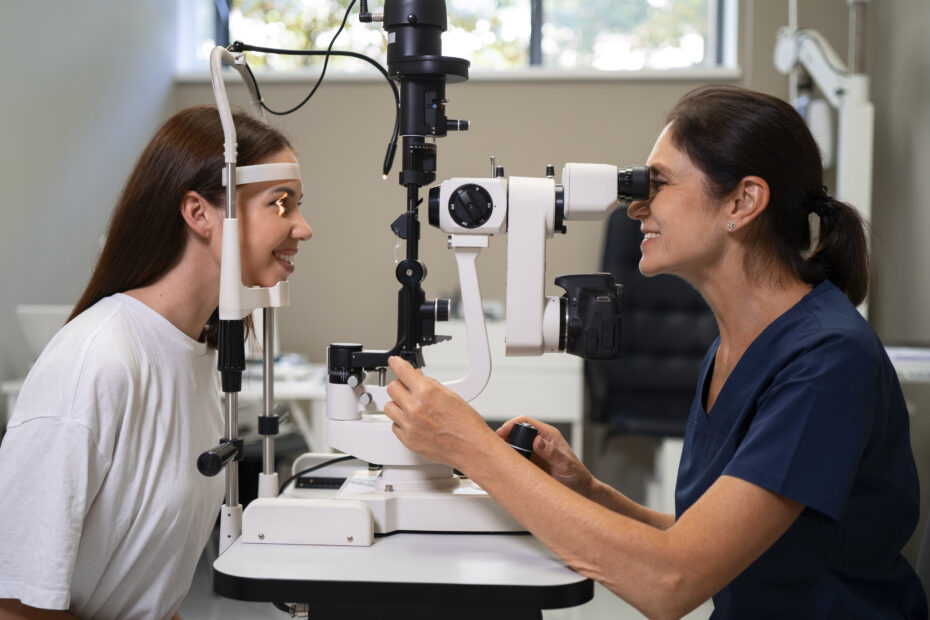Table of Contents
Introduction to Eye Health
Good eyesight is crucial for general health and knowing the fundamentals of eye health can safeguard your vision. Having routine eye check-ups, eating a balanced diet, and wearing protective glasses are essential for maintaining excellent eyesight. It’s important to have regular eye check-ups to detect and treat common eye problems like glaucoma or cataracts, which can progress without early signs.Ensuring your family receives comprehensive eye care can prevent issues and promote long-term health. For professional services and guidance on keeping your eyes in top condition, visit https://ksfamilyoptometry.com/andover-family-optometry/.
Benefits of Regular Eye Exams
Regular eye exams are essential for maintaining eye health and overall well-being. Comprehensive eye exams can help detect conditions like cataracts, glaucoma, and macular degeneration early on, increasing the chance of effective treatment. Moreover, early detection can mitigate severe outcomes and preserve vision quality. These tests allow for the chance to track any shifts in eyesight and handle problems before they become worse. Routine eye check-ups can prevent a minor eye condition from developing into a significant problem, saving both vision and health costs in the long run.
Detecting Eye Diseases Early
Detecting eye diseases early can help prevent severe damage and preserve visual acuity. Surprisingly, a routine eye exam can detect conditions such as diabetes and high blood pressure. Systemic health issues might be seen in the optic nerve and retinal blood vessels. Early diagnosis of these conditions means they can be managed more effectively, potentially preventing severe complications. This capability makes eye exams an invaluable tool in identifying broader health concerns early.
The Relationship Between General Well-Being and Eye Health
Our eyes can reveal a lot about our general health. For example, chronic dry eyes could indicate an autoimmune condition while vision changes might be a symptom of a neurological disorder. Scheduled eye check-ups can identify initial symptoms of ailments such as arthritis, multiple sclerosis and certain forms of cancer. Good eye health is a part of good overall health. Ensuring that your eyes are healthy can have positive ramifications for other areas of your health, as they can be a window into what might be happening elsewhere in your body.
What to Expect During an Eye Exam
An eye doctor will typically conduct several tests to assess your eyesight and detect any eye conditions. These include a simple vision test, pupil dilation, and even retinal imaging. Each test serves a specific purpose: the vision test ensures your glasses or contact lens prescription is accurate, while pupil dilation and retinal imaging allow the optometrist to check the health of your retina and optic nerve. Understanding what these tests look for can provide peace of mind and encourage more people to make regular appointments.
Tips for Maintaining Good Vision
- Follow a healthy diet rich in antioxidants. Foods like carrots, spinach, and fish are great for maintaining eye health.
- Take breaks from screens every 20 minutes to reduce eye strain. This is especially important for those who work long hours in front of a computer.
- Wear sunglasses to protect against UV rays. Long-term exposure can contribute to cataracts and macular degeneration.
- Make sure your prescriptions are current. Wearing old prescriptions can strain your eyes, lead to headaches, or exacerbate vision issues.
Creating consistent schedules to care for your eyes can prevent significant vision problems later. Minor adjustments in your everyday schedule can significantly help preserve good eyesight as you age.
Importance of Choosing a Trusted Optometrist
When it comes to eye health, choosing a trusted optometrist is crucial. A reliable optometrist will not only provide accurate prescriptions but also offer guidance on maintaining optimal eye health. They can assist you in comprehending your eye health and overall wellness and provide customized recommendations. A good optometrist will build a rapport with you, staying informed about your health history to offer the best care possible over the long term.
